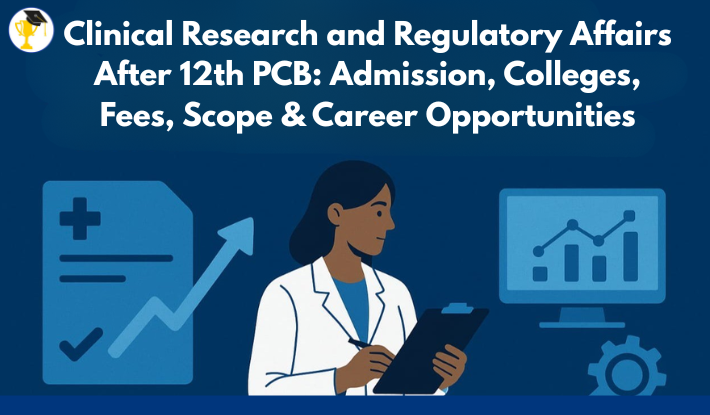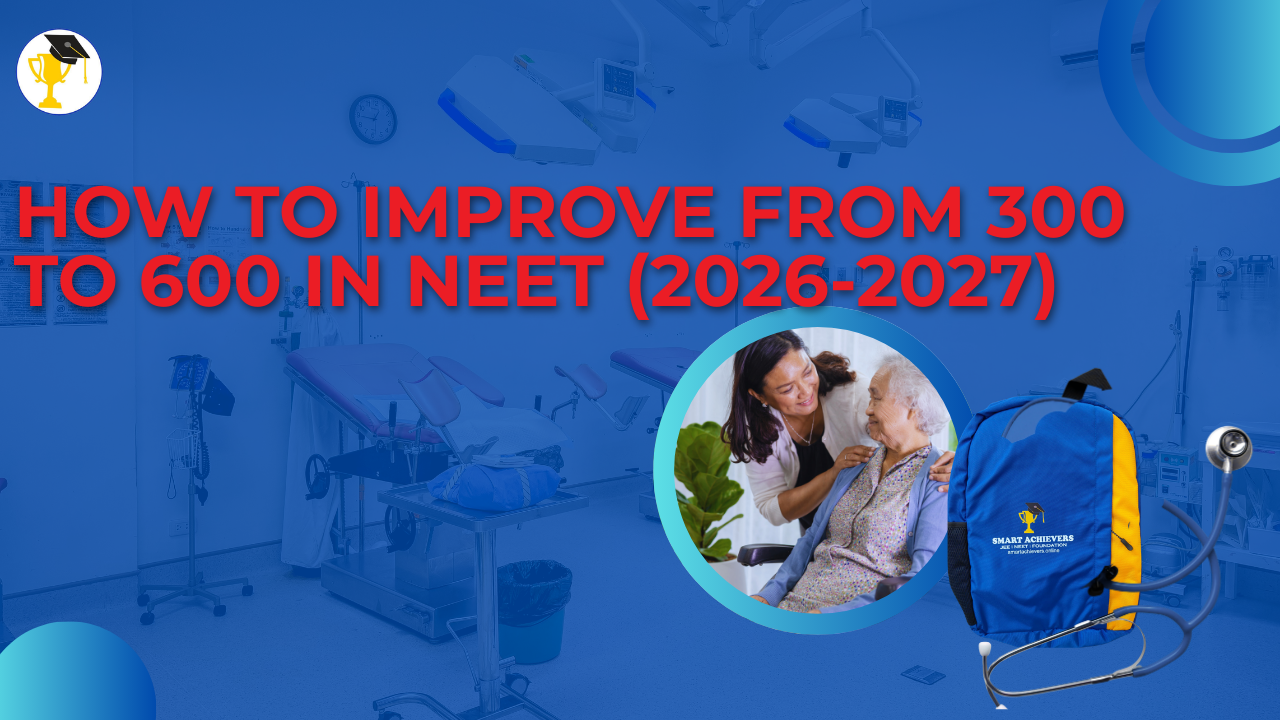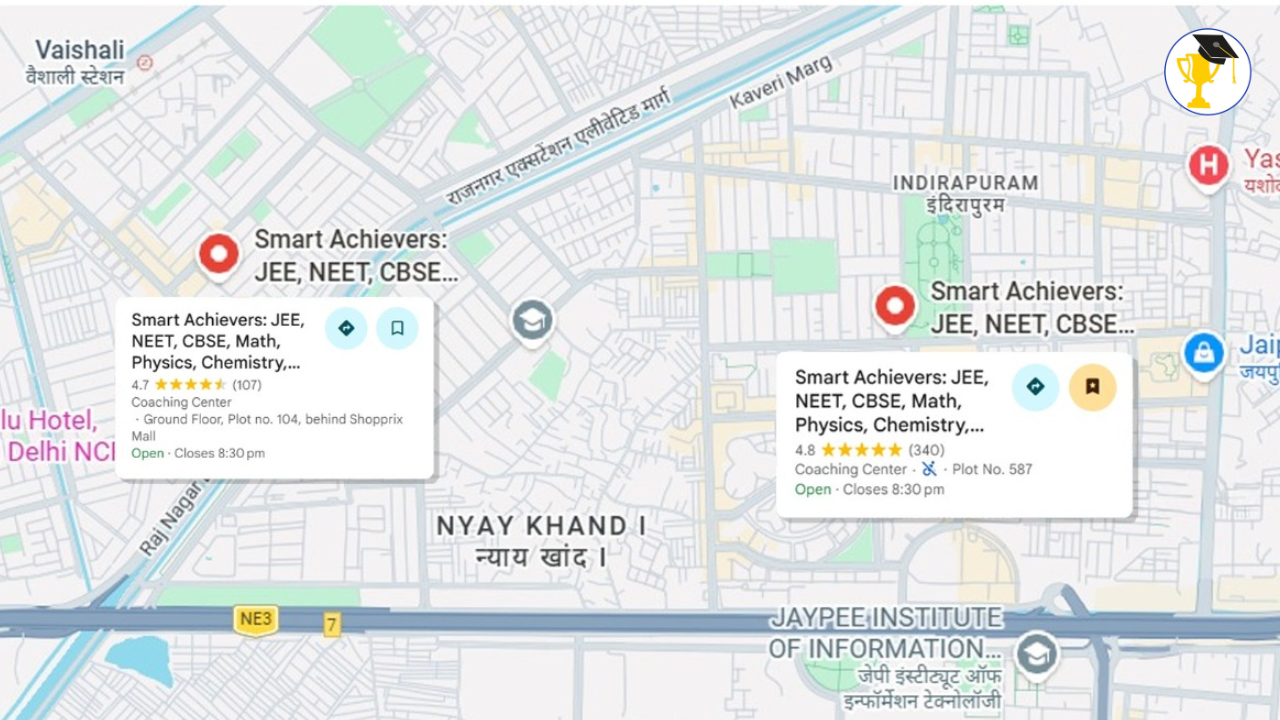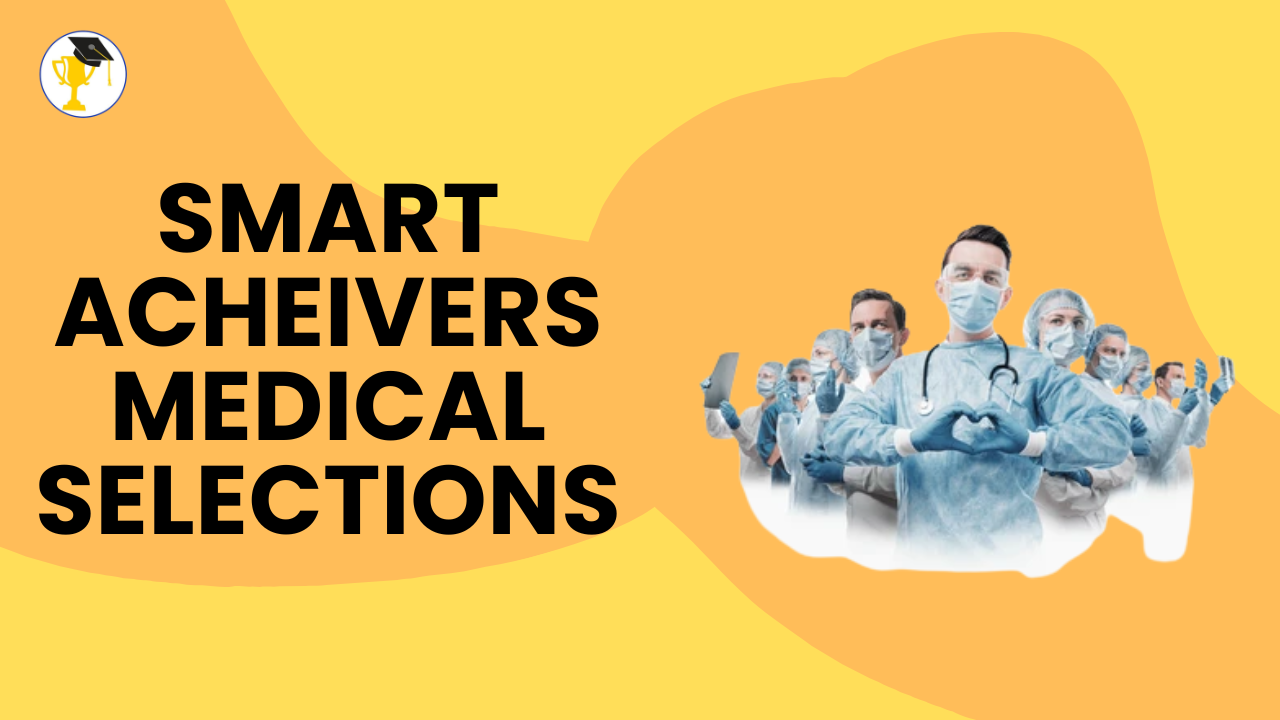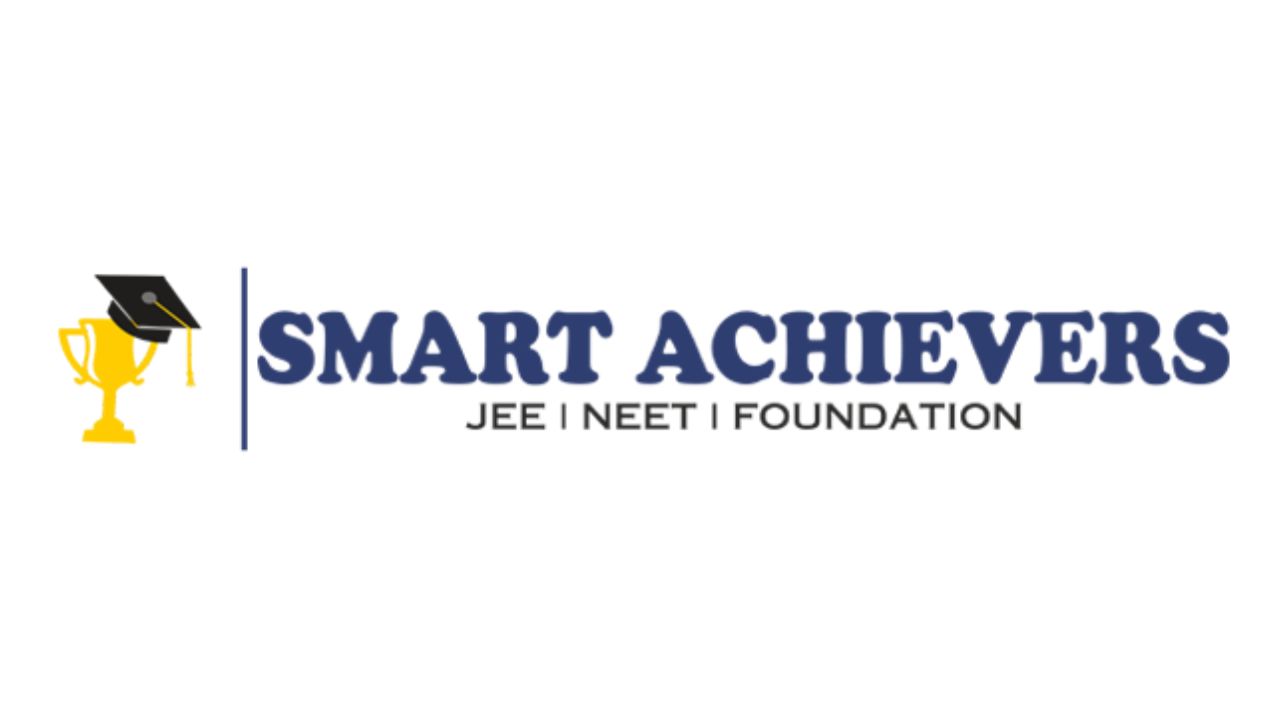Clinical Research and Regulatory Affairs After 12th PCB: Admission, Colleges, Fees, Scope & Career Opportunities
The healthcare and pharmaceutical industries are growing rapidly, driven by constant innovations in medicine and biotechnology. Behind every new drug or medical treatment are teams of professionals who ensure it’s safe, effective, and ethically approved — these experts work in Clinical Research and Regulatory Affairs.
For students who have completed 12th with PCB (Physics, Chemistry, Biology) and are curious about medicine, research, and data, this is a high-demand, high-paying, and global career option.
What is Clinical Research and Regulatory Affairs?
Clinical Research
Clinical Research is the scientific study of new drugs, vaccines, and medical devices in human participants to determine their safety, dosage, and effectiveness before they reach the market.
It involves multiple stages of clinical trials, data collection, and medical analysis.
Key Areas:
-
Clinical Trial Management
-
Pharmacovigilance (Drug Safety Monitoring)
-
Data Management and Biostatistics
-
Clinical Operations
-
Medical Writing and Reporting
Regulatory Affairs
Regulatory Affairs ensures that pharmaceutical products meet national and international regulations set by authorities like the FDA (USA), EMA (Europe), and CDSCO (India).
Professionals in this field act as the link between companies and government agencies, ensuring compliance at every stage of drug development.
Key Responsibilities:
-
Preparing and submitting regulatory documents
-
Ensuring ethical approval for clinical trials
-
Managing product registration and labeling
-
Monitoring safety standards and audits
Courses in Clinical Research and Regulatory Affairs After 12th PCB
Students can start with a bachelor’s degree in life sciences, pharmacy, or biotechnology, and later specialize through postgraduate or diploma courses.
| Course Name |
Duration |
Level |
| B.Sc. Clinical Research |
3 years |
Undergraduate |
| B.Sc. in Pharmacology / Life Sciences |
3 years |
Undergraduate |
| B.Pharm (Bachelor of Pharmacy) |
4 years |
Undergraduate |
| M.Sc. Clinical Research / Regulatory Affairs |
2 years |
Postgraduate |
| PG Diploma in Clinical Research / Regulatory Affairs |
1 year |
Diploma |
| M.Pharm (Drug Regulatory Affairs) |
2 years |
Postgraduate |
| Ph.D. in Clinical Research / Pharmacovigilance |
3–5 years |
Doctorate |
PCB students are eligible for all undergraduate programs, while postgraduate programs require a degree in Life Sciences, Pharmacy, Medicine, or Biotechnology.
Eligibility Criteria
Top Colleges in India for Clinical Research and Regulatory Affairs
Government & Reputed Institutes
| College / Institute |
Location |
| Institute of Clinical Research India (ICRI) |
Delhi / Bangalore / Mumbai |
| Jamia Hamdard University |
New Delhi |
| Manipal Academy of Higher Education |
Manipal |
| Amity Institute of Pharmacy |
Noida |
| SRM Institute of Science and Technology |
Chennai |
| JSS Academy of Higher Education |
Mysuru |
| NIPER (National Institute of Pharmaceutical Education & Research) |
Mohali |
| SIES College of Management Studies |
Mumbai |
Internationally Affiliated Institutions
| College |
Country |
| Clinical Research Network (CRN) |
UK |
| London School of Hygiene & Tropical Medicine |
UK |
| University of Glasgow |
UK |
| Johns Hopkins University |
USA |
Fee Structure
| Institution Type |
Annual Fees (INR) |
| Government Colleges |
25,000 – 80,000 |
| Private Universities |
1,00,000 – 3,00,000 |
Scholarships are available through ICMR, DBT, and private institutions for meritorious students in research programs.
Core Subjects in Clinical Research and Regulatory Affairs
-
Human Anatomy and Physiology
-
Pharmacology and Toxicology
-
Biostatistics and Epidemiology
-
Research Methodology
-
Drug Development Process
-
Clinical Data Management
-
Bioethics and Medical Law
-
Regulatory Guidelines (FDA, EMA, ICMR, WHO)
-
Pharmacovigilance
-
Quality Assurance and Compliance
Scope and Career Opportunities
Clinical Research and Regulatory Affairs are among the fastest-growing sectors in healthcare, driven by global demand for new medicines and vaccines.
Career Roles
-
Clinical Research Associate (CRA)
-
Clinical Data Manager
-
Pharmacovigilance Officer
-
Regulatory Affairs Specialist
-
Quality Assurance Executive
-
Medical Writer / Scientific Editor
-
Clinical Trial Auditor
-
Biostatistician
Industries Hiring
-
Pharmaceutical and Biotech Companies (Cipla, Sun Pharma, Pfizer, Novartis)
-
Contract Research Organizations (IQVIA, Covance, Parexel)
-
Hospitals and Clinical Trial Units
-
Government Research Agencies (ICMR, DBT, CSIR)
-
Regulatory Authorities (CDSCO, WHO, FDA)
Global Career Opportunities
These professions have excellent international scope, with growing demand for certified professionals in the USA, UK, Canada, Australia, and Europe.
| Country |
Average Salary (INR Equivalent) |
Work Areas |
| USA |
60–100 LPA |
Regulatory Affairs, Clinical Trials |
| UK |
40–75 LPA |
Medical Writing, Pharmacovigilance |
| Canada |
35–60 LPA |
Data Management, Drug Research |
| Germany |
40–70 LPA |
Compliance, Drug Safety |
| Australia |
40–65 LPA |
Clinical Trial Management |
Professionals with certifications like ACRP, RAPS, or DIA are highly valued abroad.
Higher Studies and Certifications
After graduation, students can enhance their careers through:
-
M.Sc. Clinical Research / Regulatory Affairs
-
MBA in Healthcare Management / Pharma Business
-
PG Diploma in Pharmacovigilance / Drug Safety
-
Certification Courses:
-
ACRP (Association of Clinical Research Professionals)
-
RAPS (Regulatory Affairs Professionals Society)
-
DIA (Drug Information Association)
Higher qualifications open doors to leadership roles in global pharma companies and research organizations.
Salary Range in India
| Job Role |
Average Salary (INR/year) |
| Clinical Research Associate |
4–8 LPA |
| Pharmacovigilance Officer |
4–9 LPA |
| Regulatory Affairs Executive |
5–10 LPA |
| Medical Writer |
4–7 LPA |
| Clinical Project Manager |
8–15 LPA |
Experienced professionals in MNCs can earn over INR 20 LPA or more.
Why Choose Clinical Research and Regulatory Affairs After 12th PCB?
- High-growth, research-oriented medical career
- Strong demand in India and abroad
- Opportunities to work on cutting-edge drug and vaccine research
- Suitable for students who enjoy data, analysis, and healthcare innovation
- Global recognition and lucrative salary packages
Conclusion
Choosing Clinical Research and Regulatory Affairs after 12th PCB is ideal for students who want to be at the forefront of medical innovation — without necessarily becoming doctors.
From conducting clinical trials to ensuring regulatory compliance, these professionals are vital in bringing safe and effective medicines to patients worldwide.
If you’re analytical, detail-oriented, and passionate about healthcare science, this field offers a dynamic, respected, and globally rewarding career path.
Also Read this:
https://smartachievers.online/career-options-after-pcb-without-neet
 STUDY MATERIALS
STUDY MATERIALS
 COURSES
COURSES
 MORE
MORE

